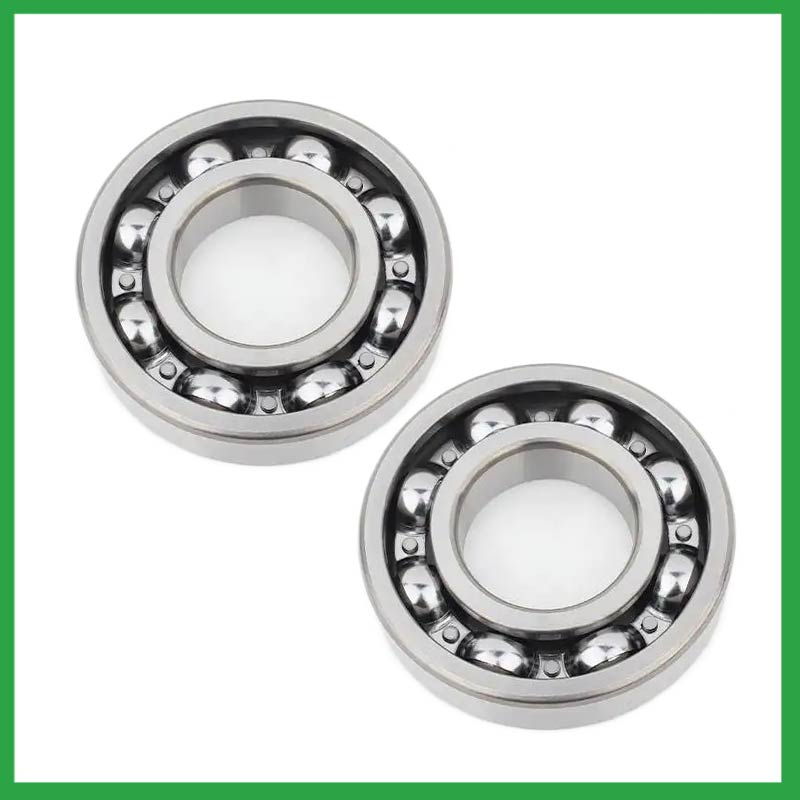PRODUCTS
CONTACT US
Ningbo Nide International Co., Ltd.
一一
· Contact person:Jack Zeng
· Mob/Whatspp/WeChat:0086-13738869026
· Email:emarketing@nide-group.com;marketing4@nide-group.com
· Add:No. 169, Wohushan Road, Daqi Subdistrict, Beilun District, Ningbo, China
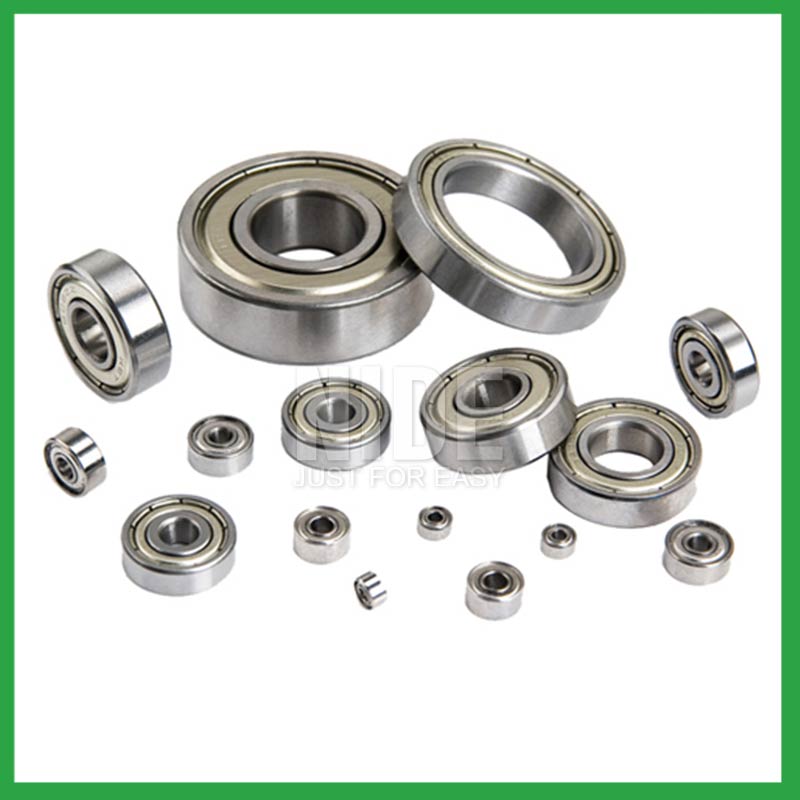
Nide team could manufacture ball bearing as per customer’s drawing and samples.
If customer only has samples, we could also design drawing fo r our customer.
We also provide customized service.
Our ball bearing is widely applied the different industrials.
Haishu Nide International is a professional ball bearing manufacturer in China, exporting various high-precision bearings to target industries around the world since 2010. The factory is located in Suzhou, with a factory area of 9000 square meters and 102 employees. It mainly produces single machine and fully automatic production lines for motor assembly line,motor stator,external rotor production machines,rotor assembly line and other customized machine tools or production lines.
We has professional technology and rich experience in quality control, customs clearance, commodity inspection, cargo transposition, insurance.We has rich stocks and is able to provide long tern stable supply, including rapid and urgent cargo handing . With companies in Europe, America , Japan and Korea, we are an integrated supplier of bearing, marketing all over the world.
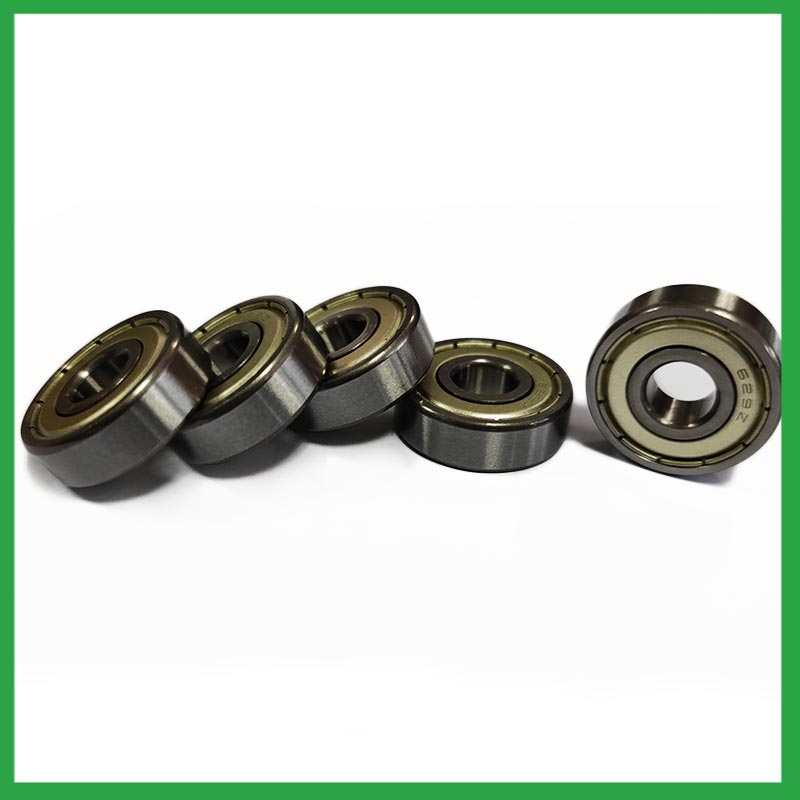
| Parameter | Information |
| Product Name | collar ball bearing |
| Brand Name | Nide |
| Place of Origin | China |
| Type | Ball |
| Material | stainless steel, etc. |
| Sample | Avaible |
| Warranty | 3months-1year |
| Lubrication | Dry/ Oil |
| Application | chemical equipment,textile machinery, etc. |
| Port | Ningbo/Shanghai |
| Size(mm) | customize |
| Export Country | Argentina,Brazil,South Korea,Jersey,Oman,Botswana,Vietnam...etc |
| Export region | Oceania,America,Asia... |
| Certification | ISO 9001 Certification,ISO9001:2015 certificate,CE-stator coil winding machine,etc |
| Precision Rating | as per customer's requirement |
| Feature | High precision,Simple structure...etc |
| Packaging Details | Suitable for sea transportation |
| Color | Silver gray+customized |
| Seals Type | Rubber seals |
| Service | Prompt Delivery |
| Supply Ability | 100000-500000 Piece/Pieces per Month |
| Lead time (days) | 15-20 (To be negotiated) |
Please note: The above table data is for reference only. For specific information, please contact us.
collar ball bearing require thrust for installation, which can be achieved by using a combination ring made of steel sleeve and transmission rubber, or by using an adjustment plate to tighten the bolt to form a combination ring installation structure.
Before use, the model, size, and design of the ball bearing should be confirmed to ensure suitable application;
During installation, the installation load of the ball bearing should be minimized as much as possible to avoid unnecessary damage;
The bearing shaft and the bearing frame should be stable at the same time to avoid excessive tension.
Ball bearings have many advantages, making them highly competitive in the market.
Firstly, they are very durable and have good wear performance, making their service life longer than many other types of bearings.
Secondly, they are easy to install and can provide low friction performance in various applications.
Thirdly, they require a relatively low level of maintenance, making them cost-effective.
In addition, compared to many other types of bearings, their purchase cost is relatively low, making them an economical choice.
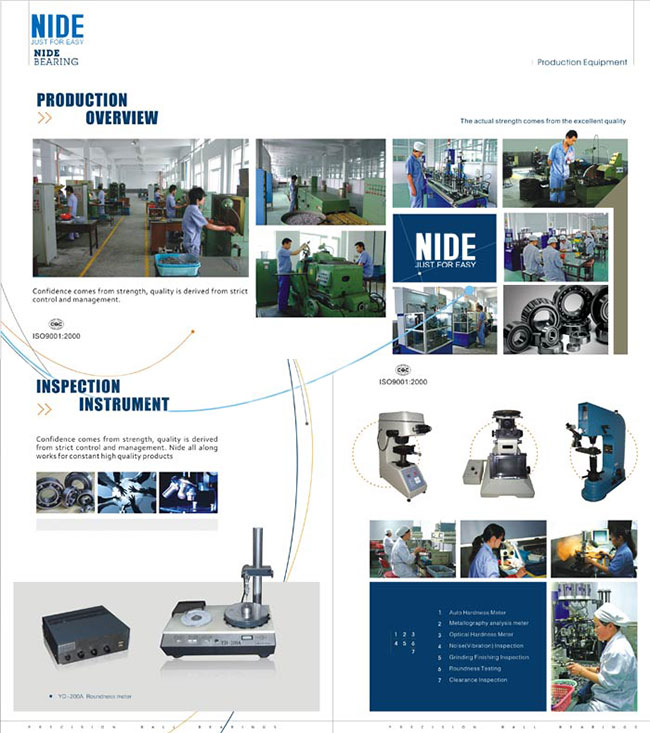
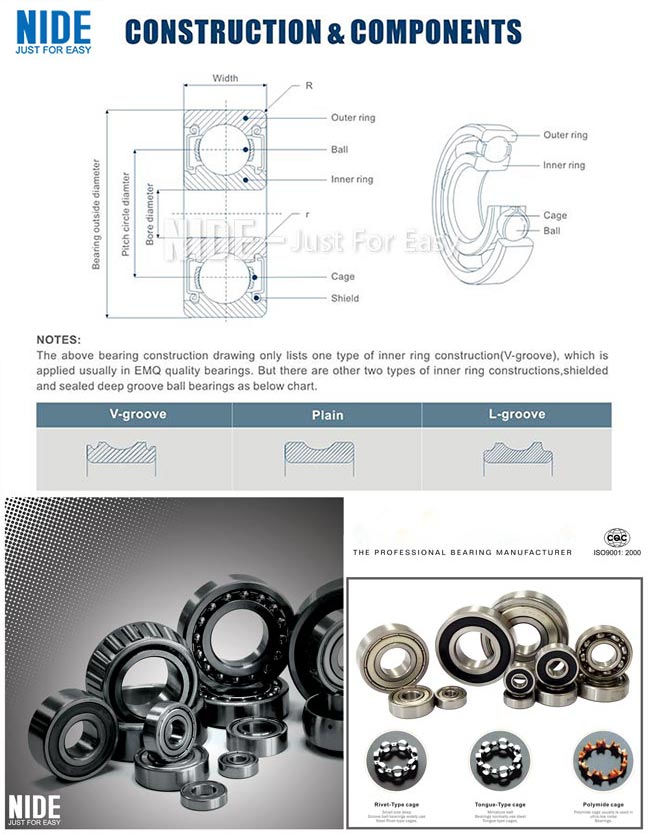
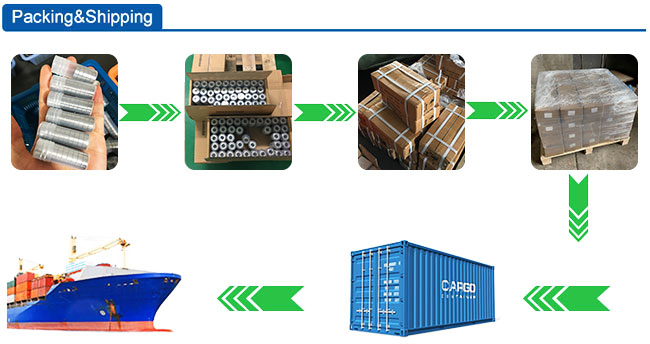
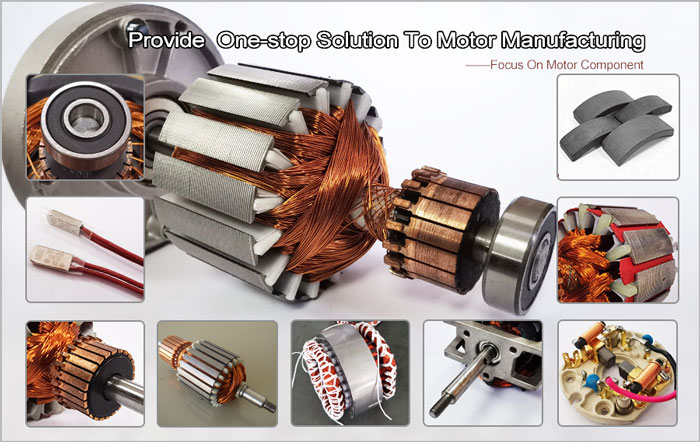
collar ball bearing---FAQs Guide
2.How do cage materials and designs impact collar ball bearing performance and stability?
3.About collar ball bearing,Can I add my own logo?
4.How do manufacturers ensure the quality and reliability of collar ball bearing through material selection and precision machining?
5.Can collar ball bearing be used in vacuum or cleanroom environments, and what measures are taken to prevent outgassing or contamination?
6.Are there miniature collar ball bearing designed for use in precision instruments and small-scale mechanisms?
7.What are the common materials used in collar ball bearing manufacturing?
8.About collar ball bearing,Will you check the products before shipment?
9.About collar ball bearing,What about the lead time?
10.Can collar ball bearing operate in high-temperature environments like industrial ovens or furnaces, and how are they protected from heat-related damage?
11.Are there collar ball bearing designed for extreme temperature environments, such as cryogenic or furnace applications?
12.Are there ceramic collar ball bearing designed for specific applications requiring high-temperature or corrosion resistance?
13.Are there collar ball bearing designed for use in critical medical equipment?
14.As a collar ball bearing manufacturer,Your product certifications?
15.How do preload adjustments in collar ball bearing affect their performance and suitability for high-precision tasks?
16.How do different collar ball bearing designs, such as deep groove, angular contact, or thrust bearings, cater to specific applications?
1.Can collar ball bearing be used in both vertical and horizontal orientations?
Sleeve Bearings: Sleeve bearings, also known as plain bearings, employ a simple yet effective mechanism. A cylindrical sleeve separates the rotating shaft from the stationary portion of the bearing, reducing friction and enabling smooth rotation. Sleeve bearings are characterized by their quiet operation, cost-effectiveness, and suitability for horizontal mounting orientations.
Ball Bearings: Ball bearings introduce small metal balls between the moving parts, providing enhanced durability and reduced friction. This design allows for smoother and more efficient rotation, making ball bearings well-suited for high-performance applications and vertical installations.
2.How do cage materials and designs impact collar ball bearing performance and stability?
As the core component of rotating machinery, the performance and reliability of high-precision collar ball bearing directly affect the overall performance and life of the machine and instrument . The increase of the rotational speed will aggravate the collision and friction of the cage, which will lead to the decrease of the rotational stability of the cage. The unstable movement of the cage could in turn lead to more severe collision and wear, thus reducing the life and reliability or even the destruction of the bearing.
Therefore, it is very necessary to study the cage stability to guarantee the stable operation of bearings. However, the dynamic characteristics of the cage is very complex. Parameters such as load, rotational speed and lubrication may affect its kinematic and tribological conditions, which leads to the change of its motion behavior.
3.About collar ball bearing,Can I add my own logo?
Yes, you can add your logo on bearings and packing box. We supply OEM SERVICE including bearing's size, logo, packing, etc.
4.How do manufacturers ensure the quality and reliability of collar ball bearing through material selection and precision machining?
High-precision measuring instruments, such as micrometers and gauges, are used to check the dimensions of the rings and balls to ensure they meet tight tolerances. Surface Finish Inspection: Surface finish is assessed using profilometers to ensure the required smoothness and low friction characteristics.
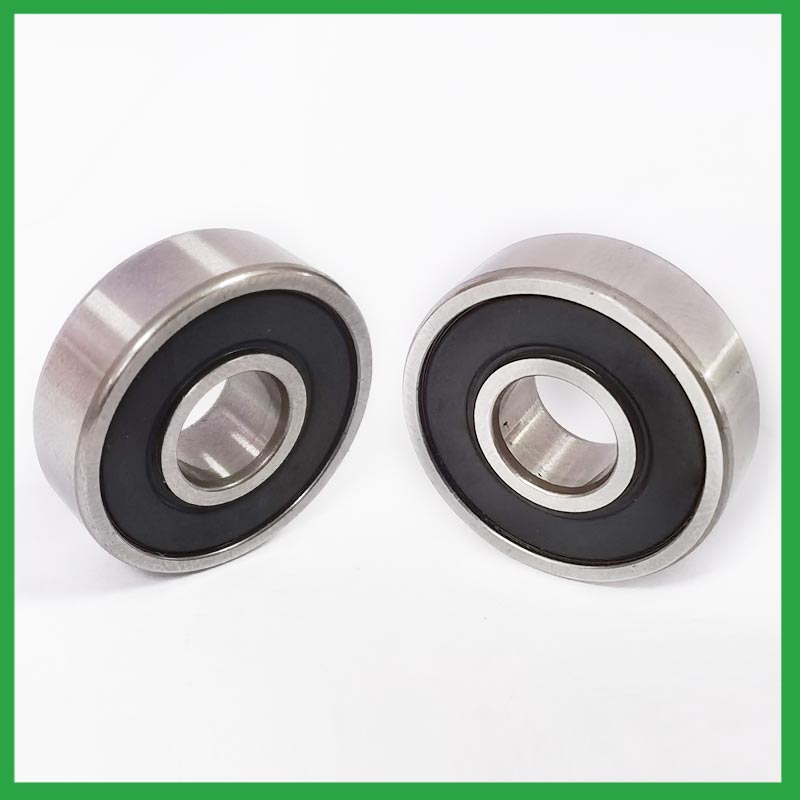
5.Can collar ball bearing be used in vacuum or cleanroom environments, and what measures are taken to prevent outgassing or contamination?
Bearings specify stainless steel for vacuum or cleanroom applications as stainless steels used for the rings, balls and retainer exhibit low outgassing. They usually supply open or shielded stainless steel bearings as vacuum bearings as these will outgas less than a nitrile rubber sealed bearing.
6.Are there miniature collar ball bearing designed for use in precision instruments and small-scale mechanisms?
Miniature bearings, despite their small size, play a significant role in various industries and applications. These compact powerhouses, typically measuring less than one inch in outer diameter, offer exceptional precision, durability, and reliability. Miniature bearings find extensive use in precision instruments and robotics.
7.What are the common materials used in collar ball bearing manufacturing?
Most collar ball bearing are made of a type of steel known as high carbon chromium steel, often called chrome steel. This is used for reasons of cost and durability. Bearings are also made from other materials such as stainless steel, ceramics and plastic.
8.About collar ball bearing,Will you check the products before shipment?
Yes, We have a professional QC team. Products will be strictly inspection before shipment.
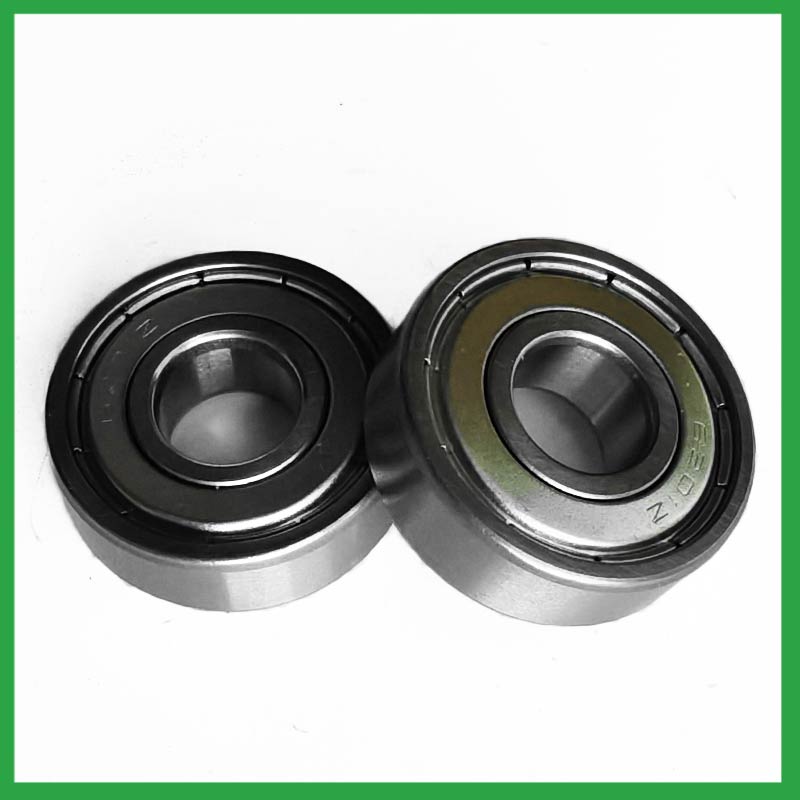
9.About collar ball bearing,What about the lead time?
3-7 days for samples, 3-4 weeks for mass production.
10.Can collar ball bearing operate in high-temperature environments like industrial ovens or furnaces, and how are they protected from heat-related damage?
collar ball bearing are capable of working at temperatures up to +842°F (+450 °C). Special lubricants, seals and coatings make this possible by protecting the ball bearings from heat damage.
11.Are there collar ball bearing designed for extreme temperature environments, such as cryogenic or furnace applications?
High temperature collar ball bearing use specialized lubricants to stand up to high temperatures. Grease-packed bearings are pre-filled with fluorine grease for high temperatures, while YS and SJ bearings use molybdenum disulfide (MoS2) solid lubricant to withstand temperatures up to 350°C and 400°C respectively.
12.Are there ceramic collar ball bearing designed for specific applications requiring high-temperature or corrosion resistance?
Ceramic collar ball bearing are a special type of bearing made of ceramic materials, offering superior wear resistance, corrosion resistance, and high-temperature performance. They provide excellent performance in applications requiring high speeds, high temperatures, and resistance to corrosion.
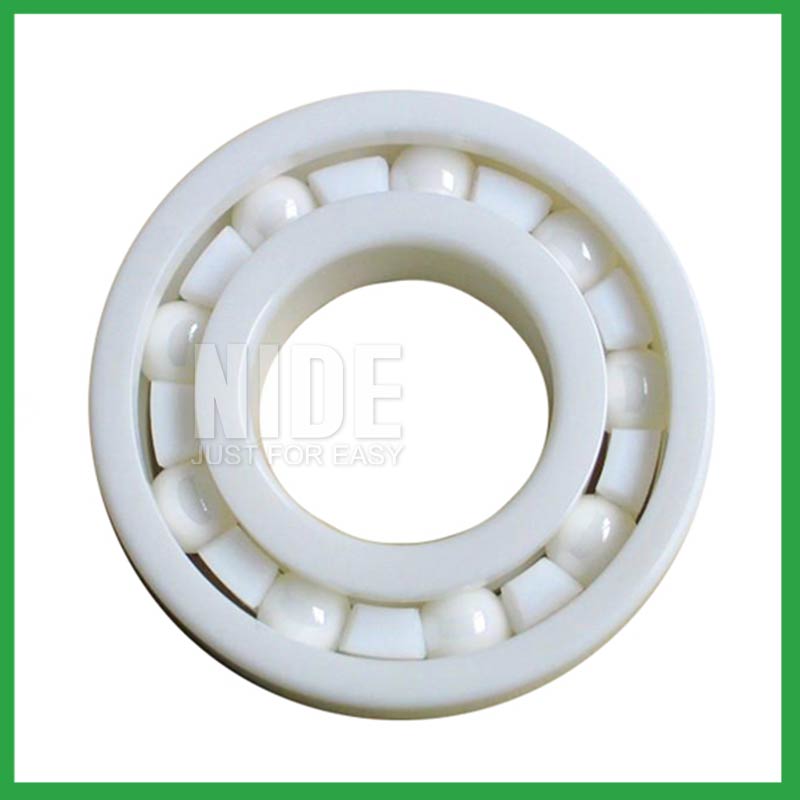
13.Are there collar ball bearing designed for use in critical medical equipment?
Precision collar ball bearing are among critical components in medical devices that are vital to ensuring patient safety. Correct choice of suitable ball and ring materials and the right product design can ensure high-precision bearings — and medical devices — have a long service life.
Precision bearings are used in a wide variety of medical devices including surgical power tools, ventilators and heart pumps — and patient safety depends on them all. Whatever the device, there is an onus on medical device original equipment manufacturers (OEMs) to ensure that the right type of bearings are chosen, and fit precisely into the application.
14.As a collar ball bearing manufacturer,Your product certifications?
ISO9001:2015 certificate,ISO 9001 Certification,CE-stator,etc.
15.How do preload adjustments in collar ball bearing affect their performance and suitability for high-precision tasks?
Benefits of Preloading a Bearing
Optimizes the ball spin to roll ratio.
Increases the rigidity of an application.
Protects from excessive ball skidding.
Decreases application vibration and sliding friction.
High running accuracy (even if load conditions keep changing)
Increases bearing load capacity.
16.How do different collar ball bearing designs, such as deep groove, angular contact, or thrust bearings, cater to specific applications?
Deep groove collar ball bearing: Deep groove ball bearings are the most common type. They can handle both radial and axial loads. Angular contact ball bearings: Angular contact ball bearings have higher than average internal axial clearance. They can handle axial loads in one direction and moderate radial loads.
